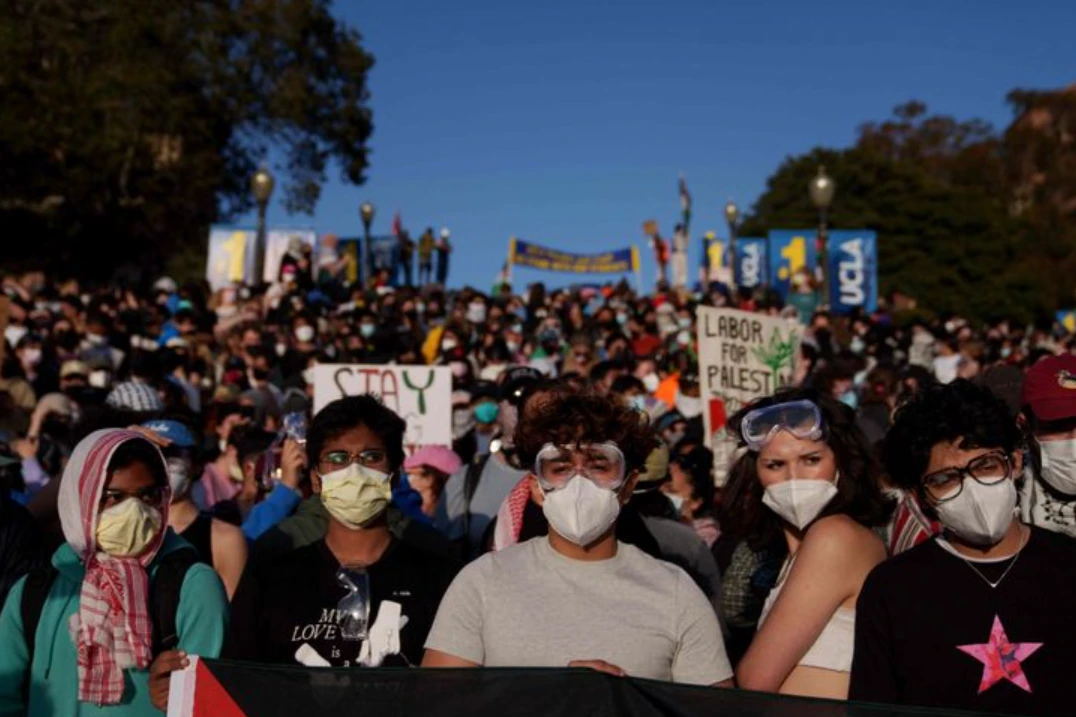US student Gaza rallies echo Vietnam, other demos: expert

Stay tuned with 24 News HD Android App

Protest encampments, clashes with police, numerous arrests: for some observers, the demonstrations roiling university campuses across the United States over Israel's war against Hamas in Gaza have sparked a sense of deja vu.
In the 1960s and 1970s, deep political divisions characterized student protests over another conflict -- the war in Vietnam.
And calls for US academic institutions to divest from Israel are reminiscent of demands made in the 1980s to cut investments with South Africa over apartheid.
Harvard professor and historian Julie Reuben, who has done research on student activism, talked to AFP about the current protests, and how they compare with those in the past.
"The biggest period of student protests in the United States, and also in many other countries, was the 1960s. The first really big campus protests happened in 1964... From 1968 to 1972, there was a lot of protest activities. (...)
"There were multiple issues that came up -- there were issues about civil rights and race. The Vietnam war was a big issue. There were issues about student rights and freedoms, and there were issues about women...
"There hasn't been another period where you have six years of intense protests about various things across many, many campuses in the United States. So that's a unique period.
"But what has been true since that period is that there has been frequent protesting -- sometimes small over local campus issues, and sometimes it becomes a kind of national movement... like the protests for divestment from South Africa" (during apartheid).
There was a lot of resistance to divestment from South Africa -- it took many years of activism to really get multiple campuses divesting. People didn't necessarily think it was a good thing for universities to do. But there wasn't a lot of really sharp division over them. (...)
"I think the '60s protests were more like that. The Vietnam war was a very controversial issue. Many people thought it was an immoral war... But many students also, at the beginning of the protest, thought it was anti-American to protest the war.
"(Today) this also is an issue where there are very emotional divisions. And that's something we haven't seen quite like it since the Vietnam war.
"Then I think the kind of outside interest and condemnation of students also is something that was very strong during the anti-Vietnam war protests, where there's a lot of criticism from the outside, a lot of political pressure to shut them down. And we're seeing that as well now."
"It's not at the scale that we saw in the height of the 1960s -- the number of protesters and the scale -- but nevertheless, the speed in which it has spread to many campuses, I think, is very striking."
"During the 1960s, university leaders were just outraged that students dare protest like this. There was a lot of repression... But there was also a pattern that seems to be apparent by the end of the decade, that the stronger the repression of protests -- bringing in police, arresting students -- the bigger protests became.
"You started seeing institutions realizing that perhaps it is better to just tolerate the protests, to not respond in a very primitive way. And that would in a way make them go away more quickly.
"And so beginning in the '70s, and I think really continuing to pretty recently, often universities responded to protests with maybe some disciplinary action, but not really harshly.
"So it is striking that so many universities are calling the police today, because that had been a very common response in the 1960s... I think many people recognize that it was not a winning response."
